Why are investors betting against shopping centres?
- Published
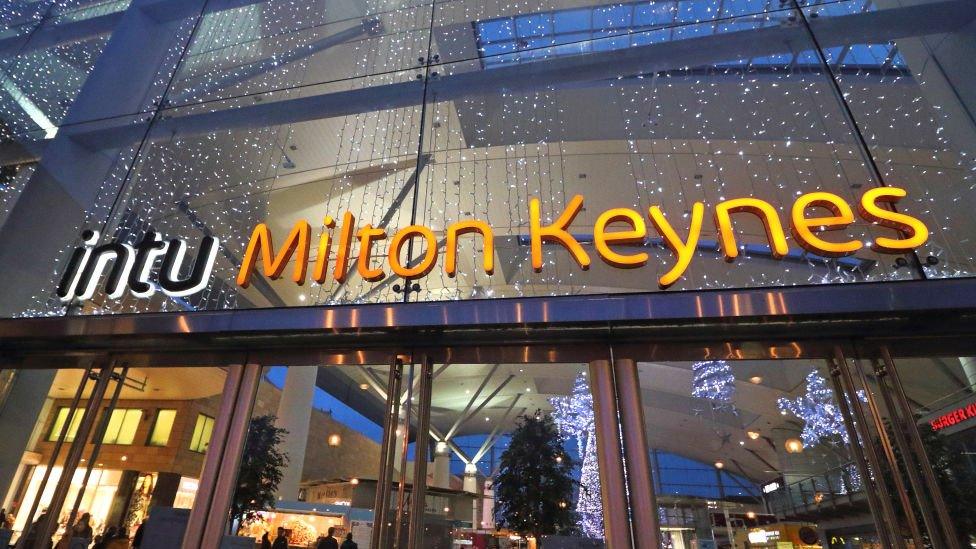
While the troubles facing well-known retail names on the UK's High Streets have been much publicised, the plight of landlords has received less attention.
However, two of the UK's biggest retail landlords have seen a combined £573m wiped off the value of their shares this year.
Hammerson and Intu, which own huge shopping centres, have had their rental income squeezed as shops try to share some of the pinch they are feeling. Some investors are fleeing and others are betting against them.
On Friday, Hammerson announced it had sold seven of its retail parks as it retreats from the sector. Meanwhile, Intu - which owns the Lakeside shopping centre in Essex, the Metrocentre in Gateshead, and the Trafford Centre in Manchester - is reportedly seeking to raise up to £1bn to shore up its finances.
Hammerson and Intu are the two most bet-against property stocks in the UK by investors, according to a report by the Estates Gazette., external Investors use a method called short selling to profit from falls in share prices.
Investors sell the stock of a company, wagering they can buy it back at a lower price and keep the difference.
Shares in Hammerson, which owns the Bullring in Birmingham, have lost more than a quarter of their value since the beginning of the year. The share price of Intu has fallen by more than 56%.
Nicholas Hyett, a senior equity analyst at Hargreaves Lansdown, says that changes in the retail sector have affected some landlords more than others.
"Since Christmas the share price has really come off of Hammerson's value. This has been a gradual process over five years but the recent fall possibly has to do with the fact that a lot of its leases have come up for renewal and High Street stores are re-negotiating these aggressively."
In the past, he says, stores used to sign 10-year contracts, but recently these leases have tended to be five years in length. The danger for landlords is that, if they do not give in to the demands of retailers and keep their rents high, they will see their tenants go out of business, leaving vacant stores.
"Now that Debenhams and House of Fraser are retrenching that means that the stores that are left have a strong position to re-negotiate," says Mr Hyett.
"While high-value places like Westfield are doing all right, it's pretty unpleasant these days if you own a second-tier shopping centre. You'll be struggling to not to lose your tenants, and to do so - you'll have to cut the rent," he says.
Margins squeezed
Online shopping and the lack of rising property values have hit landlords, who are now not only having to cut rents but also help tenants with refurbishing stores.
For example, when Next reported its half-year results last July, it said some of its leases had come up for renewal. The High Street giant said it had managed to renegotiate 37 leases, with an average rent reduction of 28%.
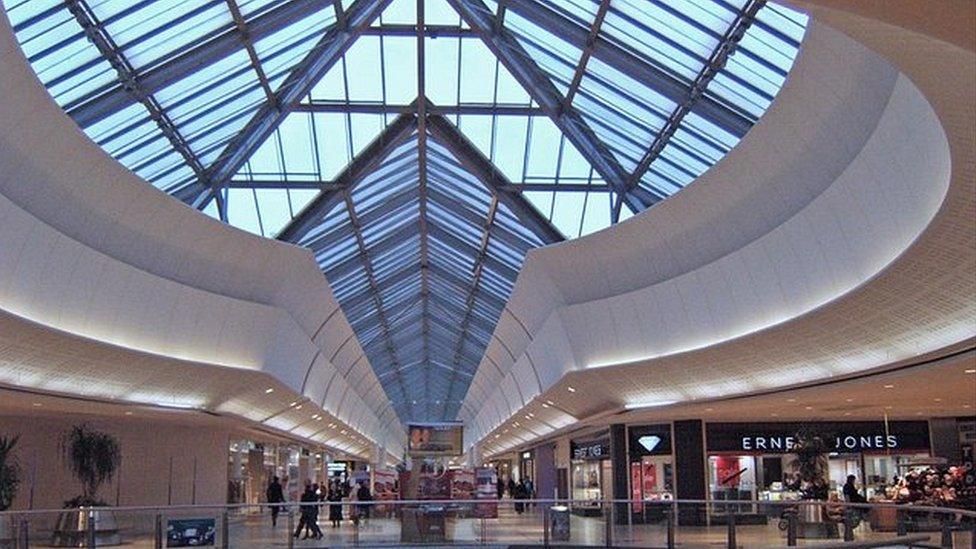
Lakeside is one of Intu's centres
An average 28% decrease in rents is the exact same figure that estate agent Savills has seen across the sector.
Agreements called Company Voluntary Arrangements (CVAs) have given retailers discounts on rent and the ability to pay back their debts over longer periods of time, but they have been tough on landlords.
"Landlords have been incredibly flexible. They are doing everything they can to keep retailers," says Mat Oakley, the head of commercial and property research at Savills.
"[Retailers on the] High Street have seen their margins squeezed and one of the easiest things to do in this situation has been to cut property costs."
Steep discounts
Experts in the City say that the position UK landlords find themselves in, and their declining share prices, will create opportunities for different kinds of investors, such as more aggressive property funds and private equity companies.
Retail analyst Nick Bubb points out that Hammerson's portfolio of properties was sold at a steep discount to a Paris-based fund, Orion Capital Management, which is also heavily invested in Intu Properties.
"We look forward to Hammerson explaining next week why the rest of its portfolio shouldn't be subject to a 22% asset value discount," Mr Bubb said in a note. Hammerson is due to report its full-year results on Tuesday.
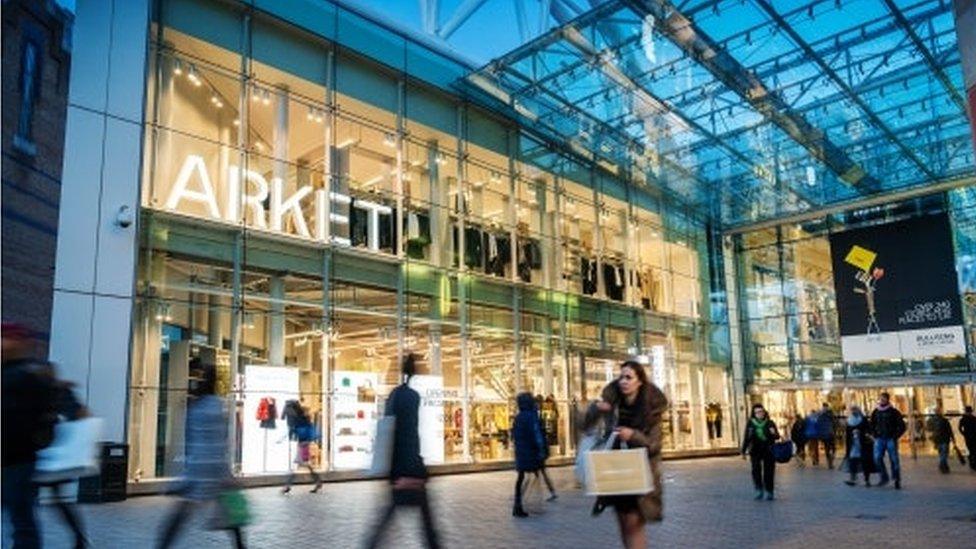
Hammerson owns Birmingham's Bullring shopping centre
Intu also faces a big couple of weeks. The company has said it plans to give details of a planned equity raise when it publishes its full-year results, which are due on 5 March.
Shares in Intu rose on Monday after a Sunday Times report, external that it was talking to Hong Kong property company Link about helping with the deal.
The company has endured a chequered two years. A failed merger with Hammerson in 2018 was followed by an abandoned attempt to take the company private by the company's chief executive, John Whittaker.
Intu declined to comment. Hammerson did not respond to emails requesting comment.
- Published20 January 2020

- Published25 February 2019
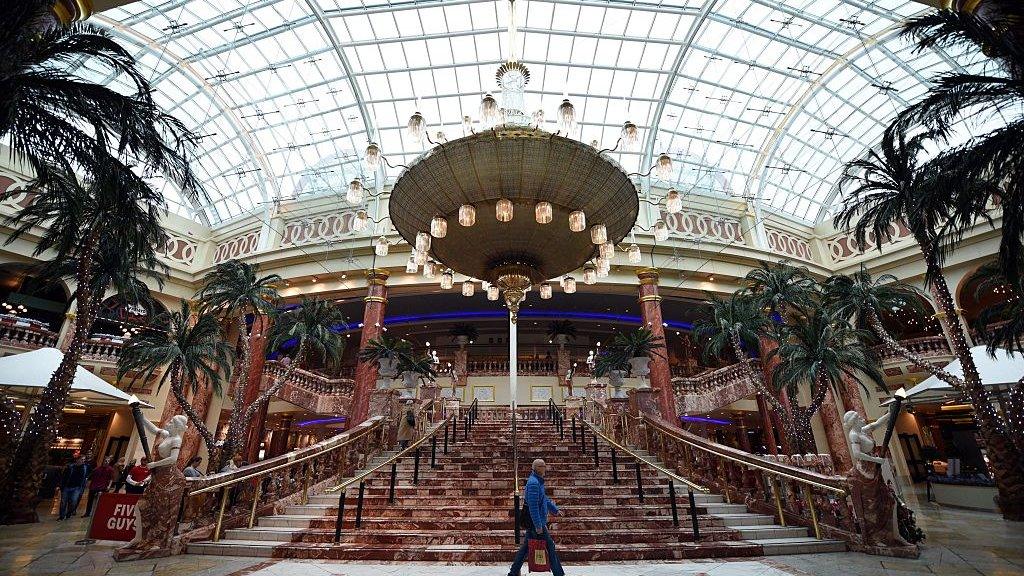
- Published3 May 2019
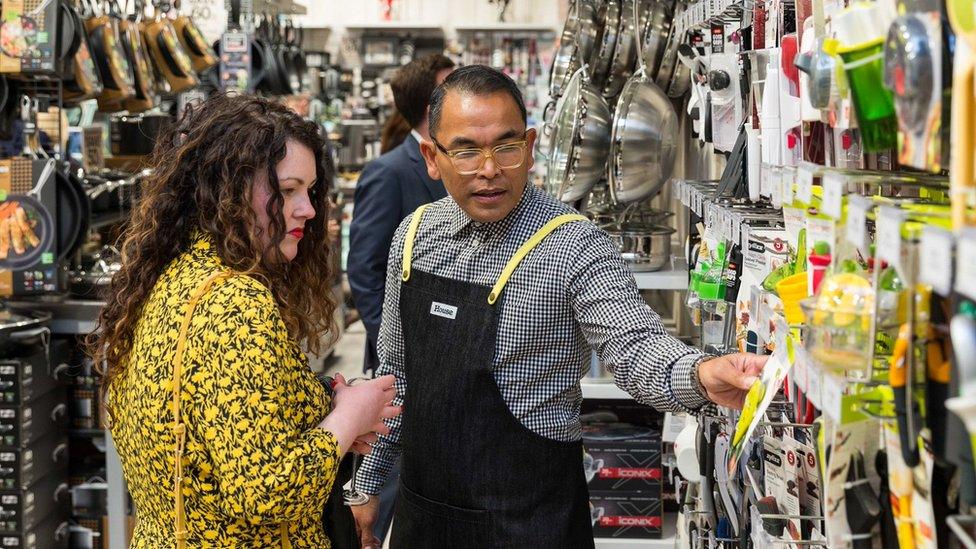
- Published18 April 2018
